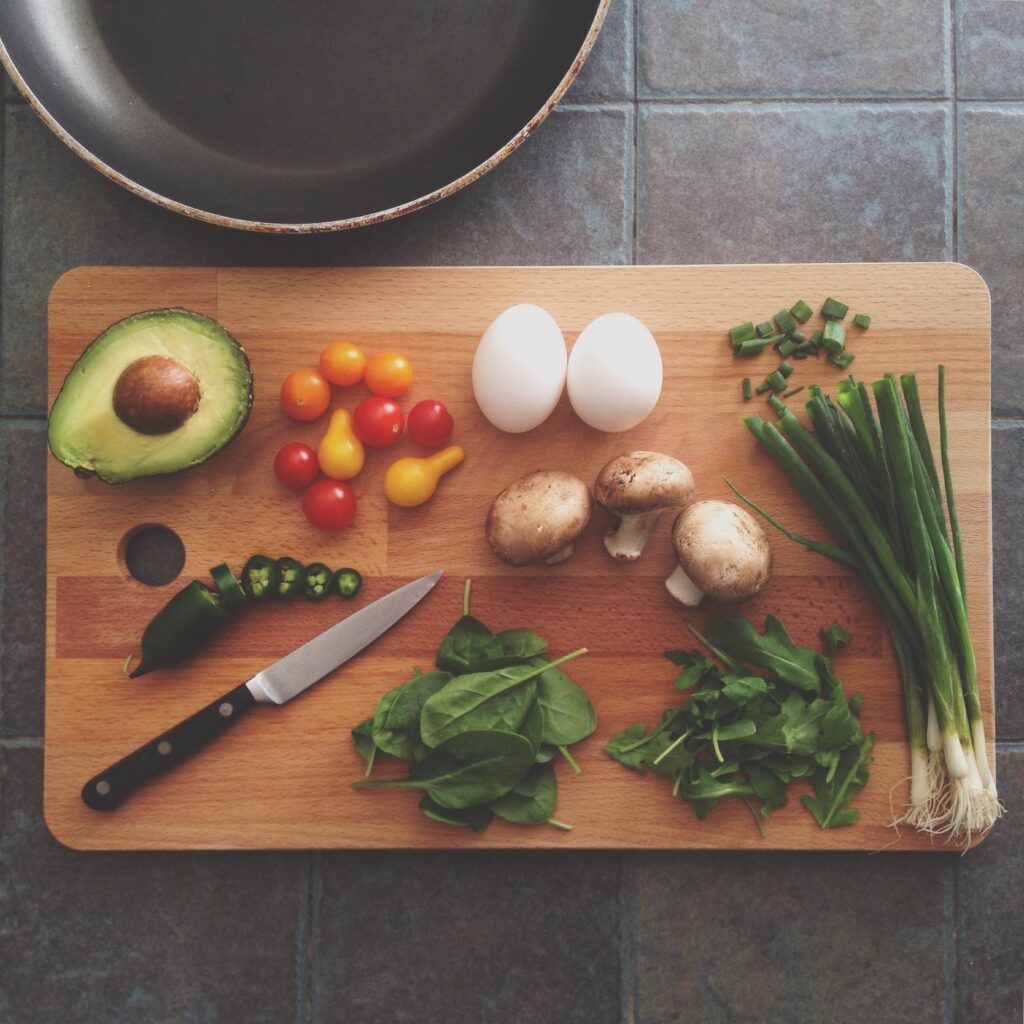
Do you often find yourself wondering how to get your kids involved in cooking? With our new product, “How Do I Get My Kids Involved In Cooking?”, you can now easily introduce your children to the joys of cooking. This engaging and interactive tool provides you with practical tips, creative recipes, and fun activities that will spark their interest and turn cooking into a family affair. Say goodbye to picky eaters and hello to little chefs in the making! Getting your kids involved in cooking can be a fun and rewarding experience for both you and your little ones. Not only does it provide quality bonding time, but it also offers a host of benefits for their development. From enhancing their motor skills and boosting their creativity to improving their math skills and teaching them about nutrition, involving kids in cooking is a win-win situation. So, if you’re wondering how to get started, here are some helpful tips and ideas to make cooking a delightful and educational experience for your children.
Benefits of Involving Kids in Cooking
Enhances Their Motor Skills
Cooking involves a range of fine motor skills, such as stirring, whisking, and chopping. By engaging in these activities, children can improve their hand-eye coordination and develop dexterity. Every time they measure ingredients, manipulate utensils, or decorate a plate, they are refining their motor skills, which can have a positive impact on their overall physical development.
Boosts Their Creativity
Cooking is a form of art, and it allows children to express their creativity in the kitchen. By giving them the freedom to experiment with flavors, colors, and textures, you can encourage their imagination and help them develop a sense of adventure when it comes to food. Whether it’s creating a whimsical fruit salad or designing their own pizza, cooking nurtures their creative thinking and gives them a sense of accomplishment.
Improves Their Math Skills
Cooking provides an engaging and practical way for children to learn and apply math skills. From measuring ingredients to adjusting quantities in a recipe, kids can develop their counting, fractions, and estimation abilities. They’ll also learn about time management as they follow cooking times and instructions. These math lessons in the kitchen can be both enjoyable and educational, making it a win-win for parents and children alike.
Teaches Them About Nutrition
Involving kids in cooking gives you the perfect opportunity to educate them about nutrition and the importance of making healthy choices. You can discuss the nutritional value of different foods, explain why balanced meals are essential, and introduce them to a variety of ingredients. By involving them in the meal planning process and teaching them about the benefits of different foods, you’re setting a foundation for a lifetime of healthy eating habits.
Getting Started
Lead by Example
Children love to imitate and learn from their parents, so being a positive role model in the kitchen is key. Show enthusiasm when cooking, let them observe your techniques, and explain the steps as you go along. When they see you enjoying the process, they’ll naturally be more inclined to join in.
Start with Simple Recipes
To build their confidence and keep them engaged, start with simple recipes that have fewer steps and ingredients. Begin with basic tasks like mixing ingredients, greasing pans, or tearing lettuce. As their skills progress, gradually introduce more complex recipes and techniques.
Make it a Fun Activity
Make cooking a fun and enjoyable activity by turning up the music, wearing silly aprons, or creating a cooking-themed playlist. Incorporate games, like timing how quickly they can whisk an egg or challenging them to identify different herbs and spices. By infusing a sense of fun into cooking, your kids will associate the kitchen with positive experiences and be more motivated to participate.
Use Kid-Friendly Kitchen Tools
Investing in kid-friendly kitchen tools can make cooking safer and more enjoyable for children. Look for child-sized utensils, such as knives with rounded edges, kid-friendly peelers, and mixing bowls with non-slip bases. These tools are designed to suit their smaller hands and provide a sense of independence while minimizing the risk of accidents.

Involving Kids in Meal Planning
Let Them Choose a Recipe
Allow your kids to choose a recipe for a meal or snack. Give them options and let them navigate through cookbooks or online sources to find something that appeals to them. When they have a say in the menu, they’ll be more invested in the cooking process and more likely to try new foods.
Take Them Grocery Shopping
Take your children along when you do the grocery shopping. Teach them about different ingredients, let them help select produce, and encourage them to ask questions. This hands-on experience will familiarize them with a variety of foods and offer opportunities for learning about budgeting, reading labels, and making nutritious choices.
Encourage Them to Create a Menu
Let your kids unleash their creativity by creating their own menu for a meal. Provide them with a variety of options and help them brainstorm ideas. Encourage them to consider balance and variety in their menu and support them in making healthy choices. This activity not only enhances their decision-making skills but also instills a sense of responsibility and ownership in the meal-planning process.
Age-Appropriate Tasks
Preschoolers
Preschoolers can participate in the kitchen by engaging in simple tasks that foster their motor skills and cognitive development. This can include washing fruits and veggies, tearing lettuce, stirring ingredients, or decorating plates. Supervision is crucial at this age to ensure their safety and to guide them through tasks.
Elementary School-Age
As children grow older, they can take on more challenging tasks in the kitchen. Elementary school-age kids can measure ingredients, follow recipes, and help with basic cutting using child-safe knives. They can also wash dishes, set the table, and assist with cleaning up after the cooking is done.
Teenagers
Teenagers can handle more complex cooking tasks, such as preparing entire meals under guidance. They can experiment with flavors, read and modify recipes independently, and begin to explore their own culinary style. At this stage, encouraging them to take the lead and allowing them to plan and execute meals can help build their confidence and independence in the kitchen.

Teaching Kitchen Safety
Handling Sharp Objects
Safety should always be a priority in the kitchen. Teach your children the proper way to handle sharp objects, such as knives and graters. Start by demonstrating safe cutting techniques and gradually allow them to practice under close supervision. Emphasize the importance of keeping fingers away from the blade and using cutting boards to prevent accidents.
Using the Stove and Oven
Teaching kids how to use the stove and oven safely is vital as they progress in their cooking skills. Set clear rules for stove and oven usage, such as no cooking without adult supervision and always using oven mitts. Explain the dangers of hot surfaces and open flames and ensure they understand the importance of turning off appliances when not in use.
Avoiding Cross-Contamination
Teach your children about the importance of avoiding cross-contamination in the kitchen to prevent foodborne illnesses. Explain the significance of washing hands before and after handling different ingredients, using separate cutting boards for raw meats and vegetables, and keeping utensils and surfaces clean. Instilling good hygiene practices from an early age will help them develop essential food safety habits.
Encouraging Healthy Eating Habits
Introduce New Ingredients
Cooking is an excellent opportunity to introduce your children to new ingredients and flavors. Encourage them to try different fruits, vegetables, and herbs, and involve them in experimenting with various recipes. By expanding their palate and exposing them to a wide range of foods, you’re nurturing their openness to healthy eating choices.
Teach Portion Control
Help your kids understand the concept of portion control by involving them in measuring and serving food. Explain the importance of balance in a meal and show them how to create a plate with appropriate portions from different food groups. This practice will teach them to make better choices, be mindful of their eating habits, and avoid overeating.
Talk About the Benefits of Different Foods
Take the time to educate your children about the nutritional benefits of different foods. Discuss the vitamins, minerals, and other nutrients found in fruits, vegetables, grains, and proteins. Explain the impact of these nutrients on their bodies and overall well-being. This knowledge will empower them to make informed choices and appreciate the importance of a well-rounded diet.

Making it a Learning Experience
Explaining Cooking Techniques
As you cook with your children, take the opportunity to explain different cooking techniques and the science behind them. Talk about why ingredients rise when baked or how heat transforms food. Show them how heat affects the texture and taste of ingredients, making it a fun and educational experience.
Discussing Food Origins and Cultural Significance
Cooking can be a gateway to learning about different cultures and their culinary traditions. Share interesting facts about the origins of ingredients, the history of particular dishes, and the cultural significance of various foods. By broadening their knowledge of global cuisine, you’re fostering an appreciation for diversity and promoting cultural understanding.
Teaching Kitchen Vocabulary
Expand your children’s culinary vocabulary by introducing them to cooking terms and techniques. Explain the meaning of words like sautéing, simmering, or blanching as you cook together. This exposure to specialized vocabulary will not only improve their language skills but also add depth to their cooking expertise.
Including Kids in Cleanup
Assign Age-Appropriate Tasks
Involving your children in the cleanup process instills a sense of responsibility and teaches them the importance of cleanliness in the kitchen. Assign age-appropriate tasks such as washing dishes, wiping countertops, or sweeping the floor. If they feel overwhelmed by the scope of the task, break it down into smaller, manageable steps.
Make it a Team Effort
Make cleanup a family affair by working together as a team. Assign different tasks to everyone and establish a routine that includes cleaning up immediately after cooking. By pitching in and sharing the workload, you’re teaching your kids that everyone has a role to play in maintaining a clean and organized kitchen.
Teach Good Hygiene Practices
Reinforce good hygiene practices by encouraging your children to wash their hands thoroughly before and after cooking. Emphasize the importance of properly cleaning utensils, cutting boards, and other cooking tools to prevent the growth of harmful bacteria. By instilling these habits early on, you’re setting the foundation for a lifetime of hygienic cooking practices.
Cooking with Friends and Family
Organize a Cooking Playdate
Hosting a cooking playdate can be a fun and social way to get your kids involved in the kitchen. Invite their friends over and plan a cooking activity that everyone can participate in. Whether it’s making homemade pizzas or decorating cookies, sharing the cooking experience with others adds an extra element of enjoyment.
Cook Meals Together as a Family
Make cooking a regular family activity by involving everyone in the process. Plan a weekly designated cooking night where each family member takes turns choosing the recipe or the theme. Cooking together not only strengthens family bonds but also allows for shared responsibilities and shared pride in the finished meal.
Invite Grandparents or Other Relatives to Cook
Invite extended family members, such as grandparents or aunts and uncles, to share their favorite recipes and cooking techniques with your children. Not only will this provide valuable bonding time, but it also allows for intergenerational learning and the preservation of family culinary traditions.
Building Confidence and Independence
Praise Their Efforts
Encourage your children every step of the way by praising their efforts and celebrating their accomplishments in the kitchen. Recognize their hard work, creativity, and willingness to try new things. By highlighting their achievements, you’re boosting their self-esteem and fostering their confidence in the kitchen.
Allow Them to Take the Lead
As your children gain more experience and confidence, gradually allow them to take the lead in planning and executing meals. Give them the freedom to choose recipes, make modifications, and even manage the timing of cooking. By empowering them to make decisions and take responsibility, you’re nurturing their independence and helping them develop valuable life skills.
Let Them Experiment with Flavors
Encourage your children to experiment with flavors and be open to trying new combinations. Allow them to add their own twist to recipes by incorporating spices, herbs, or additional ingredients they enjoy. By giving them the freedom to explore their taste preferences, you’re fostering their creativity and helping them develop their own culinary style.
In conclusion, involving kids in cooking offers a multitude of benefits, from enhancing their motor skills and boosting their creativity to improving their math skills and teaching them about nutrition. By following these tips, you can create a positive and enriching cooking experience for your children. So, roll up your sleeves, gather your little sous chefs, and embark on a culinary adventure together!
